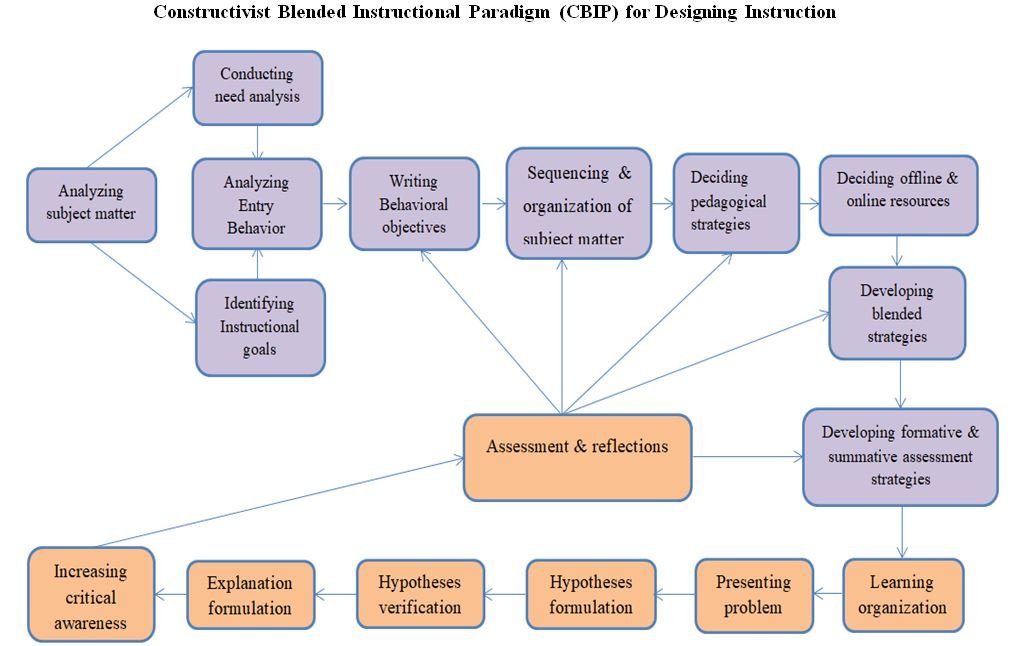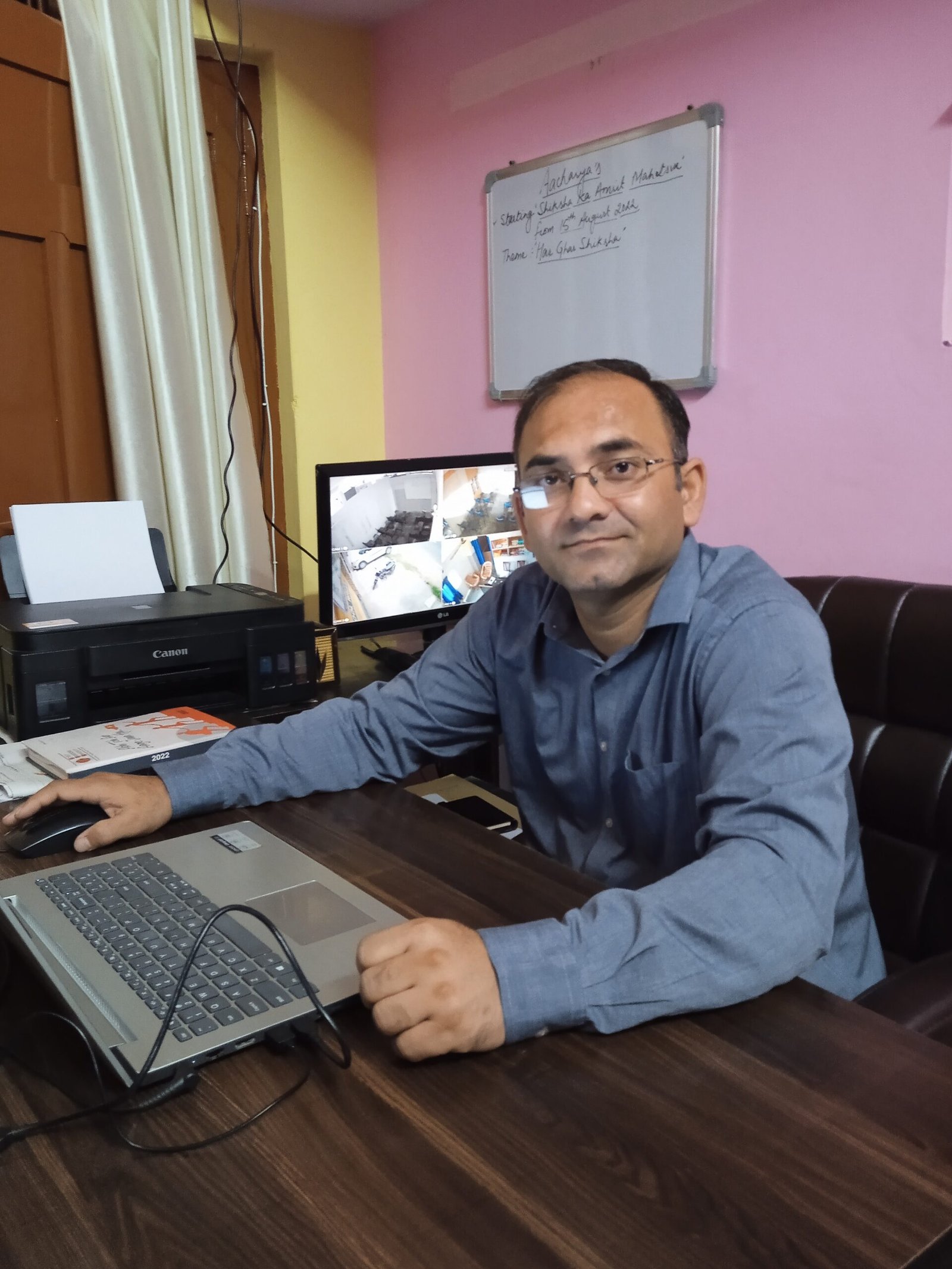At Aacharya’s, we believe that;
- Knowledge is socially constructed. The world and knowledge co-construct each other.
- Each learner is basically curious and eager to learn new things through the process of assimilation and accommodation.
- Learner’s environment, culture, language and technology play an important role in the construction of new knowledge.
- Learner actually learns when confronted with the tasks little higher than their present potential.
- Teacher is not an information provider but s\he is to be seen as constructor of situations or a facilitator.
- Technology is just a tool. Pedagogy used with the tool is of prime importance. We must decide the pedagogy first in any educational environment; offline or online.
- Technology integration facilitates teaching learning process hence improves academic achievement.
- The blended pedagogies i.e. best from all worlds, traditional face-to-face and on-line learning environment have potential to improve performance of both; teachers and learners.
- Systematic planning & contextual execution of instructional procedures supported with effective feedback prepare humane and professional teachers & learners.
Our Professional Pedagogical Paradigm
Constructivist Blended Instructional Paradigm (CBIP): Teaching Model for the future
The CBIP is a harmonious blend of all pedagogical approaches (behaviorist, cognitivist and constructivist) and technology in a balanced and pragmatic manner. It drew the best from all available resources as per the Indian context and circumstances. In this, knowledge was created situationally, by using contextual technological support matching with the ongoing textbook content. In this way, it is a blending of traditionalism and modernism, a harmonious practical combination of East and West. The thematic analysis of around 40 Instructional Design Models (ID Models) including learning theories, instructional events and principles which has influenced the Instructional Designing (ID) process during the time period of 1930s to 2019 was conducted to develop this model. This is the research based instructional paradigm which was empirically validated in live classrooms (Nagpal & Kumar, 2019).

Our focus is to let students explore the content in their surroundings first; then we allow them to relate the explored content with the content in hand (syllabus/curriculum). In the last, learners apply the developed insight to solve the problems of day to day life. This makes learning so simple and lifelong. So, we generally believe in making our learners independent thinkers and lifelong learners.


